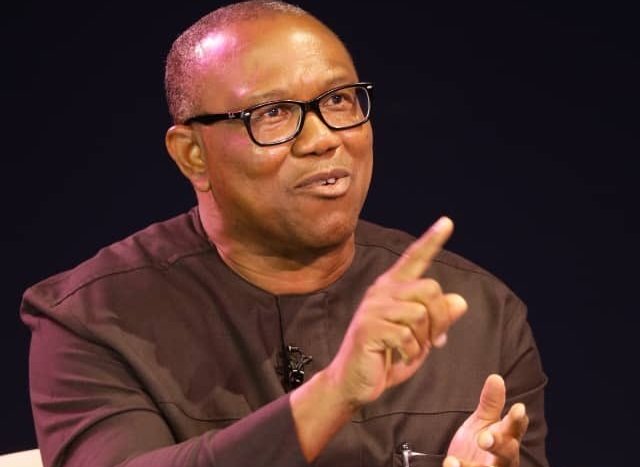Economy
Nigeria will have 110million poor people by the end of 2020 says Peter Obi

The former vice presidential candidate of the Peoples Democratic Party (PDP) in the 2019 general elections, Peter Obi has said that Nigeria will have 110million poor people by the end of 2020.
He disclosed this on Friday in Awka, the Anambra State capital during a PDP Southeast Summit ahead of the 2023 general elections.
“Your country is drifting, it is collapsing. And if you don’t do anything, it will set its revenge on you,” Obi said.
“The World Bank released a report, go and read that report. This year alone, 11 million Nigerians will fall into poverty.
“The 11 million is on top of the 100 million that is already there. That means by the end of this year, Nigeria will have over 110 million people living in poverty. It is important to know that of this 11 million person falling into poverty, eight million are youths.”
On his party, PDP National Chairman, Uche Secondus called on the youths to be creative and innovative, adding that power rests on them
According to the opposition, the party leadership has created a policy to initiate policies that will empower the young Nigerians.
In the World Bank’s report, the impact of the COVID-19 pandemic could increase Nigeria’s poverty rate by as much as 15 to 20 million by 2022.
The latest World Bank Nigeria Development Update report tagged “rising to the challenge: Nigeria’s COVID response” stated that in the next three years, an average Nigerian could see a reversal of decades of economic growth and the country could enter its deepest recession since the 1980s.
According to the bank’s Country Director for Nigeria, Shubham Chaudhuri, if there are no measures to mitigate the impact of the crisis, the economy could shrink up to 4 percent in 2020 following the twin shocks of COVID-19 and low oil prices.
“Nigeria is at a critical historical juncture, with a choice to make. Nigeria can choose to break decisively from business-as-usual and rise to its considerable potential by sustaining the bold reforms that have been taken thus far and going even further and with an even greater sense of urgency to promote faster and more inclusive economic growth.”
Meanwhile, the impact of the COVID-19 pandemic could increase Nigeria’s poverty rate by as much as 15 to 20 million by 2022, a report by the World Bank has shown.
The latest World Bank Nigeria Development Update report tagged “rising to the challenge: Nigeria’s COVID response” stated that in the next three years, an average Nigerian could see a reversal of decades of economic growth and the country could enter its deepest recession since the 1980s.
According to the bank’s Country Director for Nigeria, Shubham Chaudhuri, if there are no measures to mitigate the impact of the crisis, the economy could shrink up to 4 percent in 2020 following the twin shocks of COVID-19 and low oil prices.
“Nigeria is at a critical historical juncture, with a choice to make. Nigeria can choose to break decisively from business-as-usual and rise to its considerable potential by sustaining the bold reforms that have been taken thus far and going even further and with an even greater sense of urgency to promote faster and more inclusive economic growth.”
The report by the multilateral lender showed that food insecurity has increased significantly, and economic difficulties are on the rise due to the rapid migration of unemployed workers to the agricultural sector.
“The NDU acknowledges measures taken by the government since April, including the efforts to harmonize exchange rates, introduce a market-based pricing mechanism for gasoline, adjust electricity tariffs to more cost-reflective levels, and reduce non-essential expenditures and redirect resources towards the COVID-19 response.”
A co-author of the report, World Bank Lead Economist for Nigeria, Marco Hernandez, stated that the country needs to put more investment focus on youths, if it aims at making progress in lifting 100 million people out of poverty.
“Nigeria can build on its reform momentum to contain the spread of COVID-19, stimulate the economy, and enable the private sector to be the engine of growth and job creation. It can also redirect public spending from subsidies that benefit the rich towards investments in Nigeria’s people and youth in particular, and lay foundations for a strong recovery to help make progress towards lifting 100 million people out of poverty.”
The report also identified policy options in five key areas like “managing the domestic spread of COVID-19 until a vaccine is available for distribution; enhancing macroeconomic management to boost investor confidence; safeguarding and mobilizing revenues; reprioritizing public spending to protect critical development expenditures, and supporting economic activity and access to basic services and providing relief for poor and vulnerable communities.
It stated that all these would help mitigate the effects of the crisis and support Nigeria’s recovery.






